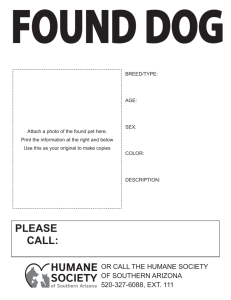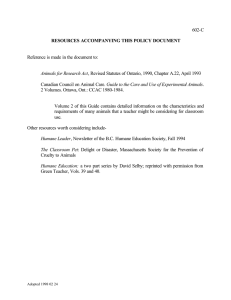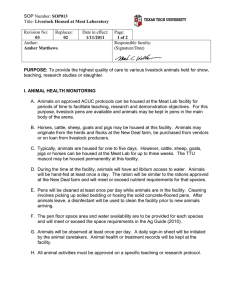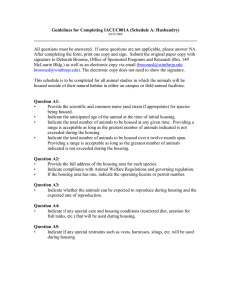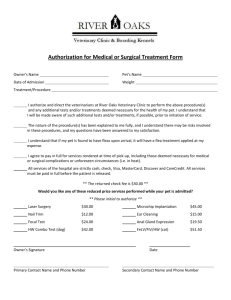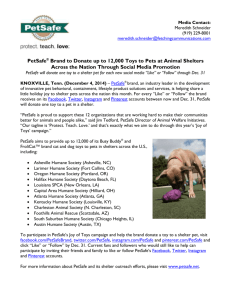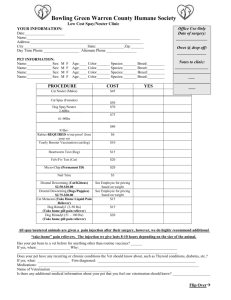policy 383 animals in the school (part of gaa)
advertisement
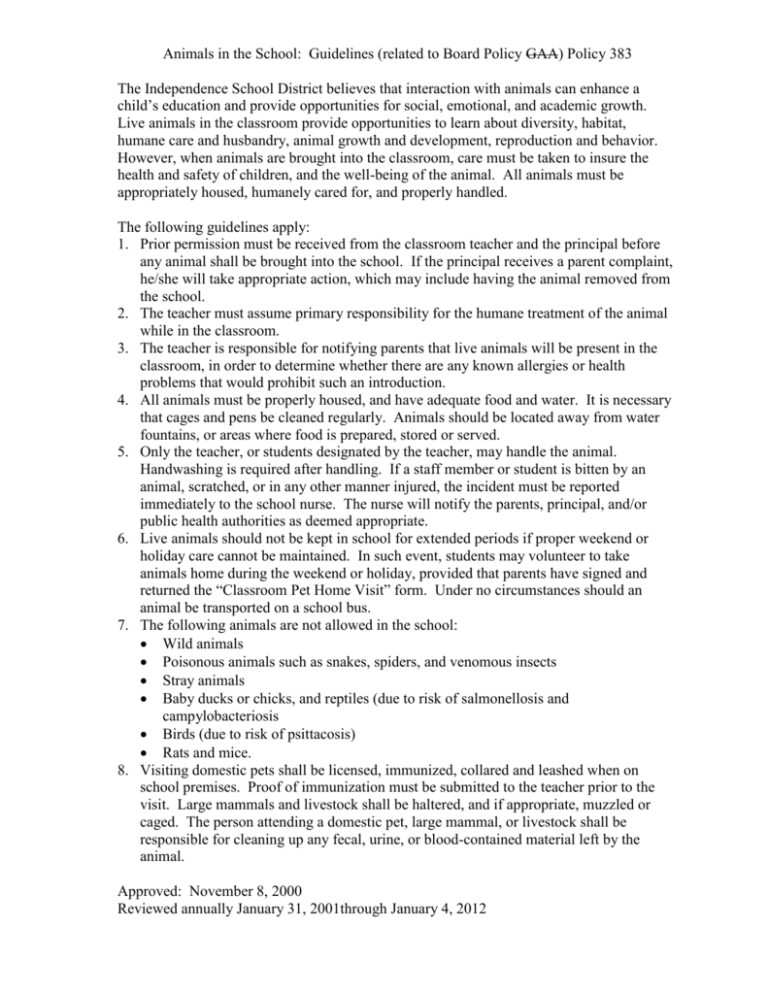
Animals in the School: Guidelines (related to Board Policy GAA) Policy 383 The Independence School District believes that interaction with animals can enhance a child’s education and provide opportunities for social, emotional, and academic growth. Live animals in the classroom provide opportunities to learn about diversity, habitat, humane care and husbandry, animal growth and development, reproduction and behavior. However, when animals are brought into the classroom, care must be taken to insure the health and safety of children, and the well-being of the animal. All animals must be appropriately housed, humanely cared for, and properly handled. The following guidelines apply: 1. Prior permission must be received from the classroom teacher and the principal before any animal shall be brought into the school. If the principal receives a parent complaint, he/she will take appropriate action, which may include having the animal removed from the school. 2. The teacher must assume primary responsibility for the humane treatment of the animal while in the classroom. 3. The teacher is responsible for notifying parents that live animals will be present in the classroom, in order to determine whether there are any known allergies or health problems that would prohibit such an introduction. 4. All animals must be properly housed, and have adequate food and water. It is necessary that cages and pens be cleaned regularly. Animals should be located away from water fountains, or areas where food is prepared, stored or served. 5. Only the teacher, or students designated by the teacher, may handle the animal. Handwashing is required after handling. If a staff member or student is bitten by an animal, scratched, or in any other manner injured, the incident must be reported immediately to the school nurse. The nurse will notify the parents, principal, and/or public health authorities as deemed appropriate. 6. Live animals should not be kept in school for extended periods if proper weekend or holiday care cannot be maintained. In such event, students may volunteer to take animals home during the weekend or holiday, provided that parents have signed and returned the “Classroom Pet Home Visit” form. Under no circumstances should an animal be transported on a school bus. 7. The following animals are not allowed in the school: Wild animals Poisonous animals such as snakes, spiders, and venomous insects Stray animals Baby ducks or chicks, and reptiles (due to risk of salmonellosis and campylobacteriosis Birds (due to risk of psittacosis) Rats and mice. 8. Visiting domestic pets shall be licensed, immunized, collared and leashed when on school premises. Proof of immunization must be submitted to the teacher prior to the visit. Large mammals and livestock shall be haltered, and if appropriate, muzzled or caged. The person attending a domestic pet, large mammal, or livestock shall be responsible for cleaning up any fecal, urine, or blood-contained material left by the animal. Approved: November 8, 2000 Reviewed annually January 31, 2001through January 4, 2012
